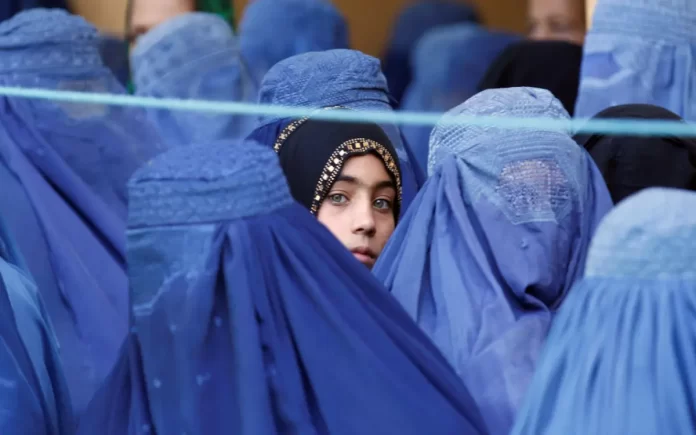Kabul: In a disturbing and significant development, Mullah Hibatullah Akhundzada, the supreme leader of the Taliban, has delivered a chilling message indicating the revival of brutal practices, including public stoning of women accused of adultery. This announcement has prompted renewed global alarm about human rights abuses and the Taliban’s oppressive rule in Afghanistan.
Akhundzada’s message, broadcasted on Taliban-controlled media and translated by The Telegraph, explicitly outlined the group’s intent to reintroduce harsh punishments like public floggings and stonings for perceived moral infractions, as dictated by their interpretation of Islamic law.
This proclamation marks a troubling regression to the Taliban’s previous regime in the 1990s, marked by severe curtailment of women’s rights and brutal enforcement of religious edicts. The Taliban’s history of human rights violations, especially against women, is well-documented. Reports of public executions, forced marriages, and systemic discrimination have drawn widespread condemnation from the global community.
Akhundzada’s recent statement reinforces concerns that the Taliban’s return to power is eroding the progress made in promoting human rights, particularly for Afghan women and girls. The resurgence of capital punishment and public executions under Taliban rule has set off alarm bells worldwide.
Read More: Iran Threatens $18 Billion Lawsuit as Pakistan Pushes Ahead with Gas Pipeline Plans
A UN report in May 2023 revealed disturbing figures, with 175 individuals sentenced to various punishments, including stoning, and over 100 facing charges for ‘crimes against God.’ These include draconian measures like lashings and demolishing walls on individuals, highlighting the harsh enforcement of Taliban ideology.
Despite widespread condemnation and calls for upholding human rights, the Taliban remains unyielding, justifying their actions as religious obligations. Akhundzada’s defiance of international norms underscores the urgent need for coordinated global efforts to protect vulnerable populations in Afghanistan.
The situation for Afghan women under Taliban rule is dire, with many facing immediate threats to their safety, freedom, and dignity. The international community has yet to prioritize the protection of human rights, particularly women’s rights, and hold the Taliban accountable for their violations.



